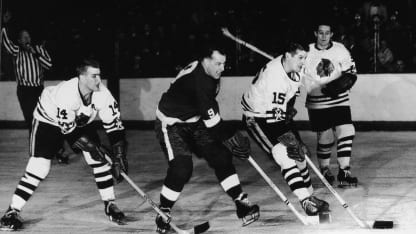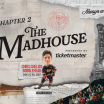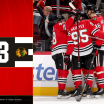Eric Nesterenko, a fluid skater and deep thinker who played 16 seasons with the Blackhawks, has died. He was 88.
Only six individuals -- Stan Mikita, Duncan Keith, Brent Seabrook, Patrick Kane, Bobby Hull and Jonathan Toews -- played more games for the franchise than Nesterenko, who logged 1,013 in various roles, many of them unglamorous.
After growing up to immigrants from Ukraine in what he called a "small mining town 400 miles north of Winnipeg, a godforsaken place called Flin Flon," Nesterenko moved with his family to Toronto. Accomplished at hockey as a youth, he was signed by the Maple Leafs, who thought they had a future superstar. But after four seasons during which he felt constrained by their style, Nesterenko was shipped to Chicago, where he became a fixture starting with the 1956-57 season.
VERDICT: Former Blackhawk Eric Nesterenko Dies at 88
Forward ranks seventh all-time for Blackhawks skaters with 1,013 games played over 16 seasons

© Getty Images
He scored 20 goals only once, in the following year. But the "Flin Flon Flash," with his elegant strides, gangly frame and exceptional intuition, emerged as a defensive savant. Nesterenko, who also answered to "Elbows" or "Swoop," reliably shadowed opposing snipers and killed penalties over a long period of years beside specialty partners such as Bill Hay, Chico Maki and Lou Angotti. When opportunity and space permitted, Nesterenko could pounce. He tallied 25 times while shorthanded, including six in 1964-65.
A nonconforming sort even during the snug Original Six era, Nesterenko enrolled at the University of Toronto while a member of the Blackhawks. College was a rumor in the National Hockey League at the time, but he sought a backup plan, just in case. General Manager Tommy Ivan of the Blackhawks, anxious to have this enlightened young man on the ice, reached a novel solution. Nesterenko could commute to classes, provided he be ready and able for games.
We are saddened by the passing of former forward Eric Nesterenko at the age of 88.
— Chicago Blackhawks (@NHLBlackhawks) June 6, 2022
Nesterenko was a key member of the 1961 Stanley Cup championship team and played 16 years with the Blackhawks. We extend our condolences to his entire family ❤️ pic.twitter.com/XSHE3EhVut
Motivated and disciplined, Nesterenko always was. He also explored life outside the box. When salary negotiations stalled, he briefly departed the Blackhawks during training camp to try out for the Toronto Argonauts of the Canadian Football League. Like the Maple Leafs, they saw a real talent and offered him a contract. With that leverage, Nesterenko returned to the Blackhawks, and helped the rejuvenated franchise toward the 1961 Stanley Cup.
Nesterenko ventured to venues not often frequented by athletes in the big city. He took in Chicago's vast cultural venues-museums, theaters, opera, symphony. Then, when the hockey season concluded, Nesterenko would vanish from the house in Evanston with wife and three kids, seeking peace and quiet. Teammates fondly tagged him as an "intellectual," but he just laughed off the label. Besides, the guys knew that when the puck dropped, Nesterenko was all in.
Studs Terkel, a legendary author, wrote a book in 1974: "Working: People Talk About What They Do All Day and How They Feel About What They Do." Nesterenko was a featured guest, and his interview did not disappoint.
"The whole object of a pro game is to win. That is what we sell. We sell it to a lot of people who don't win at all in their regular lives. I have doubts about what I do. I'm not that sure of myself. It doesn't seem clear to me at times. I'm a man playing a boy's game. Is this a valid reason for making money? Then I turn around and think of a job. I've tried to be a stockbroker. I say to a guy, 'I got a good stock, you want to buy it?' He says no. I say, 'Okay.' You don't want to buy, don't buy. I'm not good at persuading people to buy things they want to buy. But the stockbroker comes to see me play. I don't go to see him be a stockbroker. When Toronto dropped me, I said, 'I'm a failure.' Twenty-two, what the hell does one know? We know our time is fleeting. Our values are instant. It's really hard to bide your time."
Bob Greene, a famed newspaper columnist, also was intrigued by this student-athlete. After leaving the Blackhawks in 1972, Nesterenko had a brief spin with the Chicago Cougars of the World Hockey Association. He reflected on his career thusly:
"Hockey can be a heavy mistress when the legs give and maybe the mental edge too. The hardest thing for any professional athlete to recognize is that he is not the best in the world. There are so few who make it to the major leagues in any sport. All of us were the very best in our schools, our neighborhoods. Until you become a pro, you just don't comprehend that this will change. It took me two or three years in the NHL. Then one day, I just knew it was true. There are men here who are better than me. I can play my very best, I can play at the absolute top of my ability, and there still are men who are younger and much better. You hear that the players now aren't having the fun we used to have. I don't know if it's true, but if it is, it's a shame."
After retiring, Nesterenko said he became a "ski bum." He settled in Colorado where he evolved into a celebrity ski instructor. Forever amenable to trying something different, Nesterenko briefly went Hollywood, performing in the hockey flick "Youngblood." He acted as a consultant for the movie, and also as the co-starring father of an aspiring player.
"Dean Youngblood was Rob Lowe," Nesterenko recalled. "It was a typical plot. I was there to teach him how to skate. Nice fellow, not real swift on blades. But it worked and it was fun. Whatever I did, I was looking to have fun. If I had a message to today's breed in the NHL, it would be to have fun at this sport, because it's the greatest sport of all. The hockey player enjoys a privileged existence. Savor it. It's a job. But it's a job playing a game."
Eric Nesterenko. A life fully lived.

















